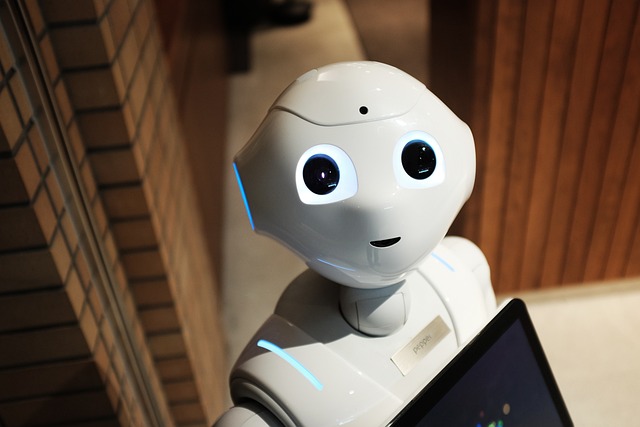# AI Technology and Its Impact on Society: Understanding the Future of Human-Machine Collaboration
The rapid advancement of artificial intelligence (AI) technology has ushered in a new era of human-machine collaboration, fundamentally altering the fabric of society. As AI systems become increasingly sophisticated, their applications span diverse sectors, including healthcare, finance, education, and transportation. This article explores the implications of AI technology on society, examining both the potential benefits and challenges that arise from this transformative relationship.
## The Rise of AI: Transforming Industries
Transformative technologies often emerge from a confluence of innovation and necessity, and AI is no exception. Industries across the globe are leveraging AI to streamline operations, enhance productivity, and improve decision-making processes. For instance, in healthcare, AI algorithms analyze vast datasets to detect patterns and predict patient outcomes, enabling personalized treatment plans that were previously unimaginable. These advancements not only improve patient care but also reduce costs and increase efficiency in healthcare systems.
Moreover, the financial sector has embraced AI to optimize trading strategies and mitigate risks. Machine learning models analyze historical data and real-time market trends, allowing financial institutions to make informed decisions at unprecedented speeds. As a result, the integration of AI into finance has led to more accurate forecasting and improved risk management, ultimately benefiting consumers and investors alike.
In the realm of education, AI tools are increasingly being deployed to create personalized learning experiences. Adaptive learning platforms assess individual student performance and tailor educational content to meet their unique needs. This approach not only enhances engagement but also fosters a more inclusive learning environment. By harnessing AI technology, educators can better support diverse learning styles and ensure that each student reaches their full potential.
## The Societal Benefits of Human-Machine Collaboration
Collaboration between humans and machines has the potential to yield numerous societal benefits, fundamentally reshaping our daily lives. One of the most significant advantages of AI technology is its ability to augment human capabilities. By automating repetitive tasks, AI frees up time for individuals to focus on more complex and creative endeavors. This shift not only enhances job satisfaction but also encourages innovation and problem-solving.
Furthermore, AI-driven solutions can address pressing societal challenges, such as climate change and public health crises. For example, AI systems analyze environmental data to optimize energy consumption and reduce carbon footprints. These initiatives are crucial in the fight against climate change, as they enable organizations to make data-driven decisions that promote sustainability. Similarly, AI technology plays a pivotal role in pandemic response efforts, from tracking disease outbreaks to developing vaccines more rapidly.
As AI technology continues to evolve, its potential to bridge gaps in access and opportunity becomes increasingly apparent. In underserved communities, AI-driven platforms can provide access to quality education, healthcare, and employment resources. By democratizing access to information and services, AI has the power to level the playing field and empower individuals to improve their circumstances.
## Navigating the Challenges of AI Integration
Despite the myriad benefits of AI technology, the integration of AI into society is not without its challenges. Ethical considerations surrounding data privacy, bias, and accountability are paramount as we navigate this new landscape. The collection and analysis of vast amounts of personal data raise concerns about surveillance and the potential misuse of information. Striking a balance between leveraging data for innovation and safeguarding individual privacy is crucial to fostering public trust in AI systems.
Bias in AI algorithms is another pressing issue that demands attention. If not carefully managed, AI systems can perpetuate existing inequalities by reflecting the biases present in their training data. For instance, facial recognition technology has faced scrutiny for its inaccuracies and discriminatory outcomes, particularly concerning marginalized groups. Ensuring that AI systems are developed with fairness and inclusivity in mind is essential to avoid exacerbating societal disparities.
Moreover, the potential for job displacement due to automation poses a significant concern for the workforce. While AI technology can enhance productivity, it may also render certain jobs obsolete. Preparing for this shift requires a proactive approach to workforce development, including reskilling and upskilling initiatives that equip individuals with the necessary skills to thrive in an AI-driven economy. Policymakers, businesses, and educational institutions must collaborate to create pathways for workers to transition into new roles that leverage human creativity and emotional intelligence—qualities that machines cannot replicate.
## Conclusion: Embracing a Collaborative Future
In conclusion, the impact of AI technology on society is profound and multifaceted. As we stand on the precipice of a new era of human-machine collaboration, it is essential to recognize both the potential benefits and the challenges that lie ahead. By embracing the opportunities presented by AI while addressing ethical and societal concerns, we can shape a future that harnesses the power of technology for the greater good.
The road ahead will require thoughtful dialogue and collaboration among stakeholders across various sectors. By prioritizing transparency, inclusivity, and ethical considerations, we can create a framework that maximizes the benefits of AI technology while minimizing its risks. Ultimately, the future of human-machine collaboration holds the promise of a more innovative, equitable, and sustainable society—one in which technology serves as a powerful ally in our quest for progress.











